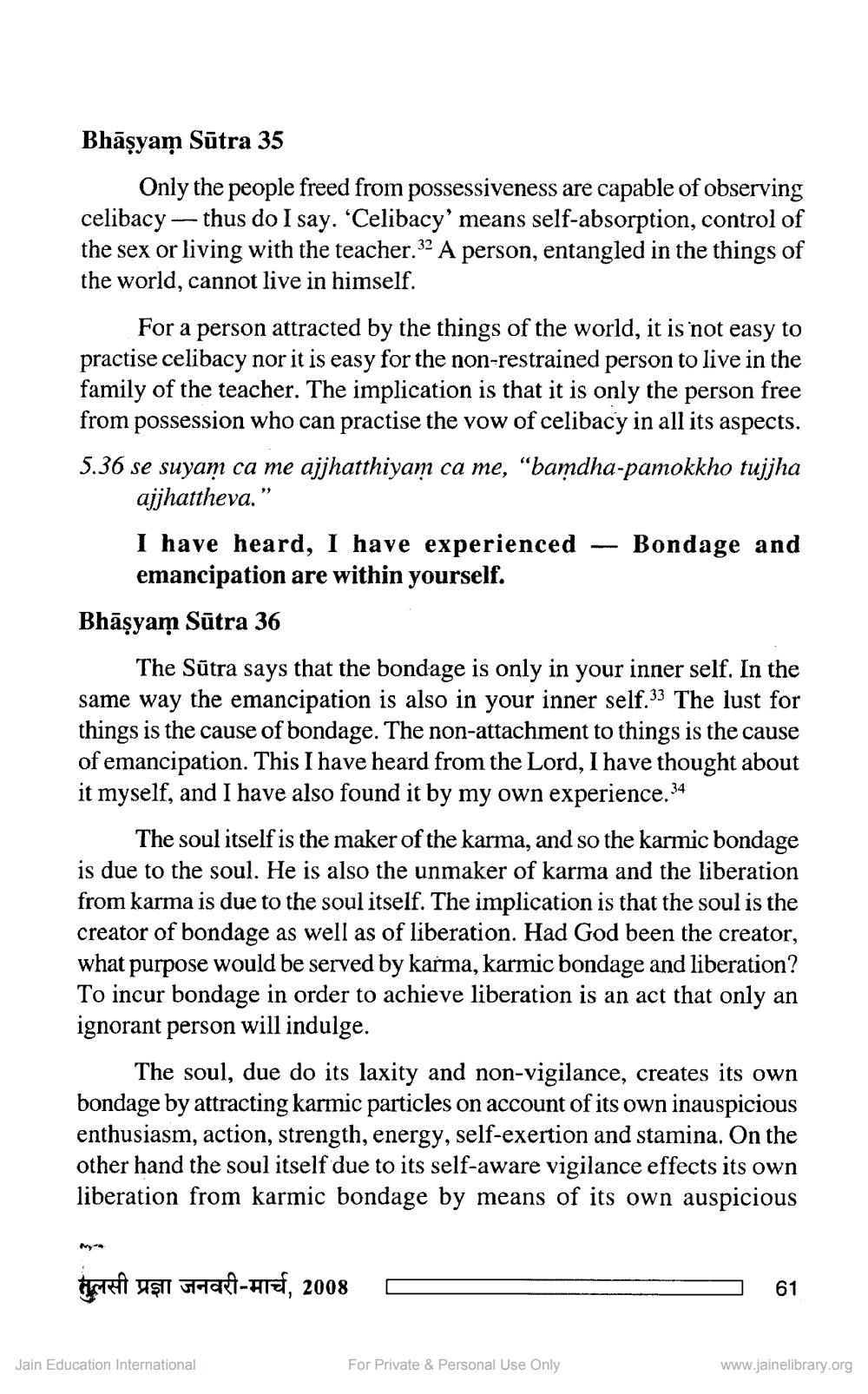________________
Bhāsvam Sutra 35
Only the people freed from possessiveness are capable of observing celibacy — thus do I say. 'Celibacy' means self-absorption, control of the sex or living with the teacher.32 A person, entangled in the things of the world, cannot live in himself.
For a person attracted by the things of the world, it is not easy to practise celibacy nor it is easy for the non-restrained person to live in the family of the teacher. The implication is that it is only the person free from possession who can practise the vow of celibacy in all its aspects. 5.36 se suyam ca me ajjhatthiyam ca me, “bamdha-pamokkho tujjha
ajjhattheva." I have heard, I have experienced – Bondage and
emancipation are within yourself. Bhagyam Sutra 36
The Sūtra says that the bondage is only in your inner self. In the same way the emancipation is also in your inner self.33 The lust for things is the cause of bondage. The non-attachment to things is the cause of emancipation. This I have heard from the Lord, I have thought about it myself, and I have also found it by my own experience. 34
The soul itself is the maker of the karma, and so the karmic bondage is due to the soul. He is also the unmaker of karma and the liberation from karma is due to the soul itself. The implication is that the soul is the creator of bondage as well as of liberation. Had God been the creator, what purpose would be served by karma, karmic bondage and liberation? To incur bondage in order to achieve liberation is an act that only an ignorant person will indulge.
The soul, due do its laxity and non-vigilance, creates its own bondage by attracting karmic particles on account of its own inauspicious enthusiasm, action, strength, energy, self-exertion and stamina. On the other hand the soul itself due to its self-aware vigilance effects its own liberation from karmic bondage by means of its own auspicious
Orreft uşil waki-Href, 2008
-
-
61
Jain Education International
For Private & Personal Use Only
www.jainelibrary.org




